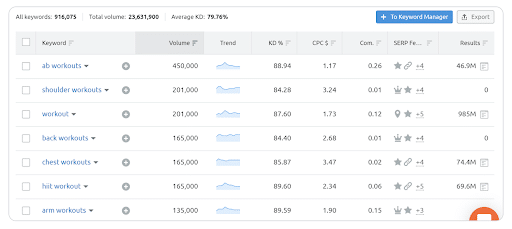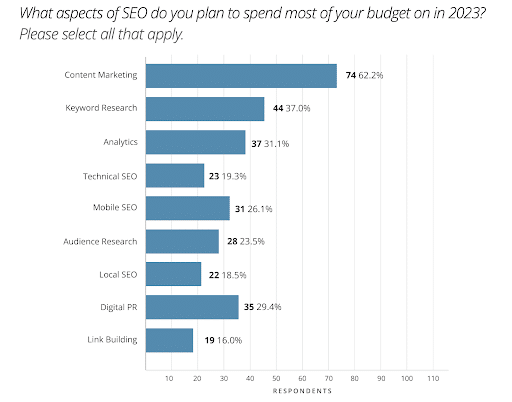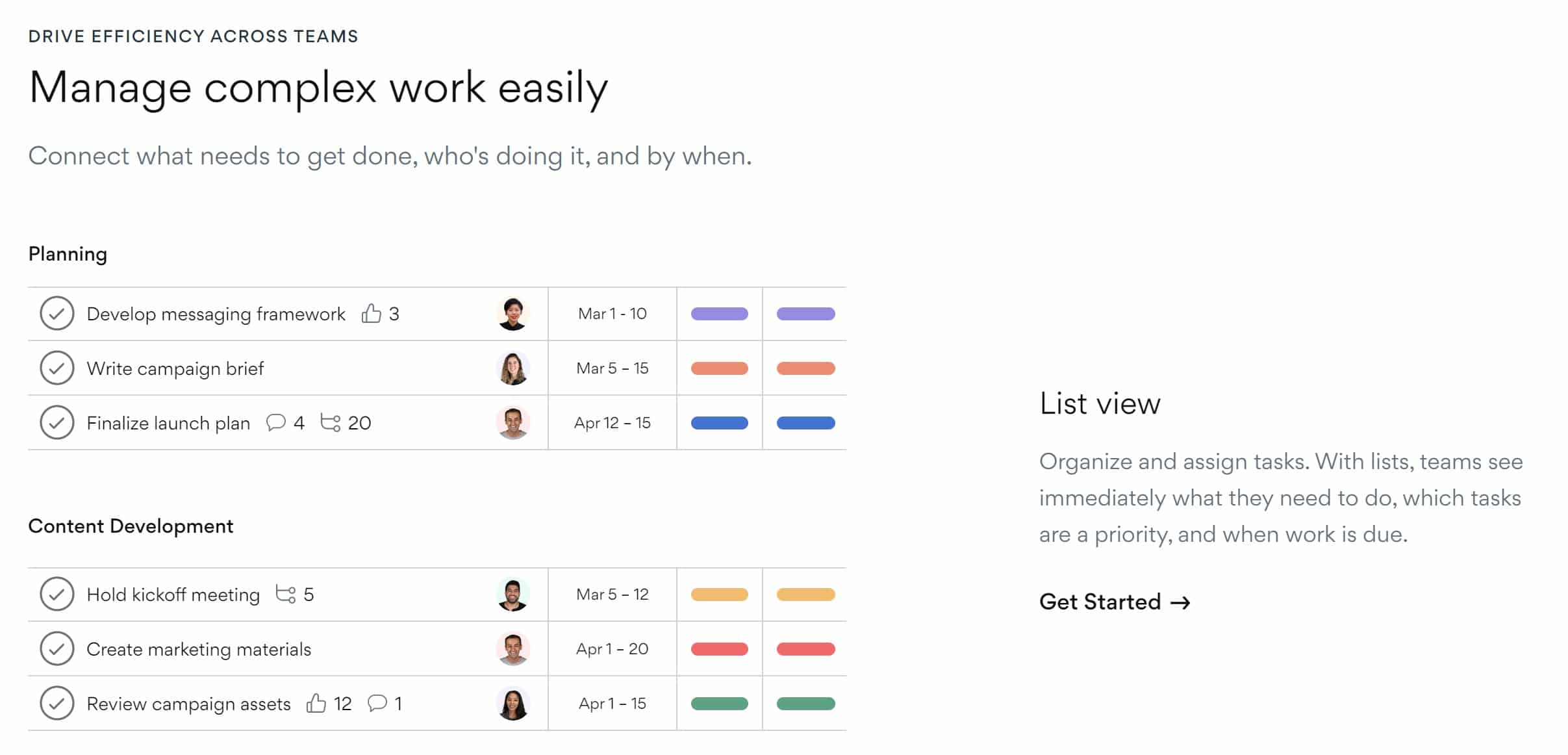
Picture this–you’ve been fully immersed in a complicated, multi-team project, and are close to the final stages. Then, plot twist! The client contacts you with a request to move everything in an entirely different direction. If this sounds familiar, it may be time to consider implementing an agile project management methodology in your organization.
What is Agile Project Management in Digital Marketing?
Before we dive into the depths of how agile project management drives digital marketing success, let’s first define what this framework entails and how it distinguishes itself from other management styles.
Put simply, agile project management is a unique approach that prioritizes flexibility, collaboration, and adaptation.
It contrasts with traditional project management methodologies that are linear and rigid, often struggling to keep up with the swift pace of digital marketing.
The Role of Agile Project Management in Digital Marketing Success
What sets agile project management apart is its ability to adjust to changing circumstances and incorporate feedback quickly.
Unlike traditional methods that follow a predefined path, agile methodology thrives on a continuous cycle of planning, executing, reviewing, and refining.
This iterative process ensures that digital marketing strategies remain flexible and responsive, resulting in campaigns that can pivot as needed to achieve optimal outcomes.
Key Benefits and Principles of Agile Project Management
When agile project management joins forces with digital marketing, the possibilities are endless. Let’s explore the key benefits and principles that make this partnership so powerful.
1. Improved Collaboration and Communication Feedback Loop
Agile project management places collaboration and communication at its core. In digital marketing, where cross-functional teams often collaborate remotely, creating a strong feedback loop is crucial.
Agile practices ensure that team members share insights, address challenges, and adapt as needed. This continuous exchange fosters a sense of unity and collective ownership, leading to more innovative solutions and efficient campaign execution.

Example of Sharing Insights – Report in SEMrush
2. Build Accountability
In digital marketing, where there’s often a considerable overlap between tasks, maintaining accountability can be challenging.
Luckily, agile methodologies allocate specific responsibilities within the team, creating a sense of ownership for each project. This ownership, combined with the regular review and refinement cycles, keeps team members engaged, motivated, and committed to delivering results.
3. Encourages Diversity of Ideas
Digital marketing thrives on fresh perspectives and creative solutions. Agile project management actively encourages input from team members. By valuing each team member’s expertise and insights, agile practices lead to more innovative ideas that can transform campaigns from okay to exceptional.
4. Greater Control Over Project Timelines and Budgets
One of the biggest hurdles in digital marketing is managing timelines and budgets. Agile project management addresses this concern through its iterative planning and execution cycles. By breaking down projects into smaller, manageable micro-tasks, teams can closely monitor progress, identify potential bottlenecks, and make necessary changes to stay on track.

Example of Prioritizing and Dividing an SEO Budget
5. Higher Quality Deliverables
Quality is non-negotiable in the competitive world of digital marketing. Agile project management’s continuous refinement approach ensures that campaigns are consistently optimized. This iterative process allows teams to uncover potential improvements at every stage, resulting in higher-quality deliverables that resonate with target audiences.
Agile Project Management Frameworks
Two prominent agile project management frameworks that have gained traction in the digital marketing realm are Scrum and Kanban. Let’s take a look at how these frameworks can empower your digital marketing team to boost productivity and deliver campaigns that break through the noise and connect with your customers.
Scrum
Scrum divides projects into short, fixed-duration periods called sprints. During each sprint, the team focuses on completing a predefined set of tasks. Regular sprint reviews allow teams to evaluate progress, adjust priorities, and refine strategies whenever necessary. In digital marketing, Scrum can be particularly effective for managing content creation, social media campaigns, and website optimizations.

Example of Scrum Process – Agile Project Management
Kanban
Kanban creates a visualization of items and tasks, allowing teams to see the flow of the project from start to finish. This framework provides real-time visibility into project status and helps manage work in progress effectively. In digital marketing, where campaigns often involve multiple channels and tasks, Kanban can aid in managing complex workflows and maintaining a smooth, continuous delivery process.

Example of a Kanban Board – Agile Project Management
Common Challenges in Agile Digital Marketing Project Management
While agile project management brings a lot to the table, it’s important to recognize the obstacles that digital marketers can run into. Here are a few of the key challenges confronting agile project managers and organizations.
- Complexity of Digital Marketing Campaigns – Digital marketing campaigns involve intricate webs of tasks, channels, and technologies. Navigating this complexity requires careful planning and coordination to ensure that all elements align seamlessly.
- Changing Customer Demands – Digital marketing success hinges on understanding and adapting to consumer preferences and behavior. Agile project management helps teams swiftly respond to changing demands, but it also requires a deep understanding of the target audience and their evolving needs.
- Rapidly Evolving Technology – The digital landscape is characterized by rapid technological advancements. Staying updated and integrating new technologies into campaigns is essential but can also pose a challenge.
5 Agile Project Management Tools for Digital Marketers
With the right tools at your disposal, your digital marketing endeavors can be streamlined and executed with precision, driving both creativity and results. These agile project management software platforms are designed to empower digital marketing teams to collaborate efficiently, manage tasks, and track progress effectively:
1. Monday.com
Monday.com combines project management with collaboration features, allowing teams to customize workflows and track progress in real-time.
Key Features:
- 200+ ready-to-use templates for various functions like project management, operations, marketing, sales, and CRM.
- Tailor private boards, views, and dashboards to suit your unique needs.
- Execute IF/THEN automations.
- Easily share files and reports.
- Set and track goals and key results.
Pricing:
- Basic: Starting at $10/seat/month billed monthly (or $8/seat/month when billed annually)
- Standard: Starting at $12/seat/month billed monthly (or $10/seat/month when billed annually)
- Pro: Starting at $20/seat/month billed monthly (or $16/seat/month when billed annually)
2. Trello
Trello is a visual task management tool that utilizes boards and cards to represent tasks, making it easy to track project status at a glance.
Key Features:
- Board, card, and list organization for streamlined project tracking.
- Subtask creation using checklists for task breakdown.
- Task allocation to multiple members with notifications.
- Inclusion of deadlines and an activity log for progress tracking.
- Attachment support for organized resource management.
Pricing:
- Free: $0
- Standard: $5 per month
- Premium: $10 per month
- Enterprise: $17.50 per month

Trello Dashboard for Agile Marketing
3. Asana
With Asana, teams can create tasks, set due dates, and track progress in a streamlined way, facilitating effective project management.
Key Features:
- Assign tasks, sub-tasks, and recurring tasks to team members.
- Organize tasks into workflows with timing and deadlines.
- Set milestones for clear project guidance.
- Monitor workflow essentials with custom data fields.
- Identify task dependencies for smooth collaboration.
Pricing:
- Basic: $0
- Premium: $10.99 per month
- Business: $24.99 per month

Asana – Agile Project Management Planning
4. JIRA
Ideal for more complex projects, JIRA offers comprehensive tools for tracking tasks, managing backlogs, and visualizing project workflows.
Key Features:
- Dashboards for clear data visualization.
- Track tasks, bugs, and issues seamlessly.
- Integration with more than 3,000 tools.
- Agile framework for planning, tracking, and managing.
- Plan, track, release, and report using roadmaps.
- Manage roles and permissions easily.
Pricing:
- Free: $0
- Standard: $7.75
- Premium: $15.25 per month
- Enterprise: Contact Jira for pricing

JIRA – Agile Project Management
Agile Project Management System
5. Wrike
Wrike offers versatile project management functionalities, including task tracking, time management, and resource allocation, tailored to the needs of digital marketing teams.
Key Features:
- 400+ third-party app integrations to choose from.
- Varied views: Gantt charts and Kanban boards.
- Advanced reporting (Enterprise and Pinnacle).
- Timelines for tracking time and progress.
- Issue tracking for prompt problem-solving.
- iOS and Android mobile apps.
Pricing:
- Free: $0
- Team: $9.80 per user per month
- Business: $24.80 per user per month
- Enterprise: Contact Wrike for pricing
- Pinnacle: Contact Wrike for pricing
Wrike – Agile Project Management
Want to Get the Most Out of Your Digital Marketing Strategy?
It’s safe to say that effective project management is the secret sauce behind making digital marketing campaigns shine. Whether it’s charting out campaign strategies or streamlining daily tasks, agile project management is like the guiding star that keeps your team on track in the dynamic world of digital marketing.
Ignite Visibility has a team of expert digital marketing professionals who leverage the power of organization and communication to help businesses achieve their marketing goals. Our expert strategists work closely with clients to understand their unique needs and design customized strategies that maximize return on investment.
Want to learn more about our digital marketing services?

